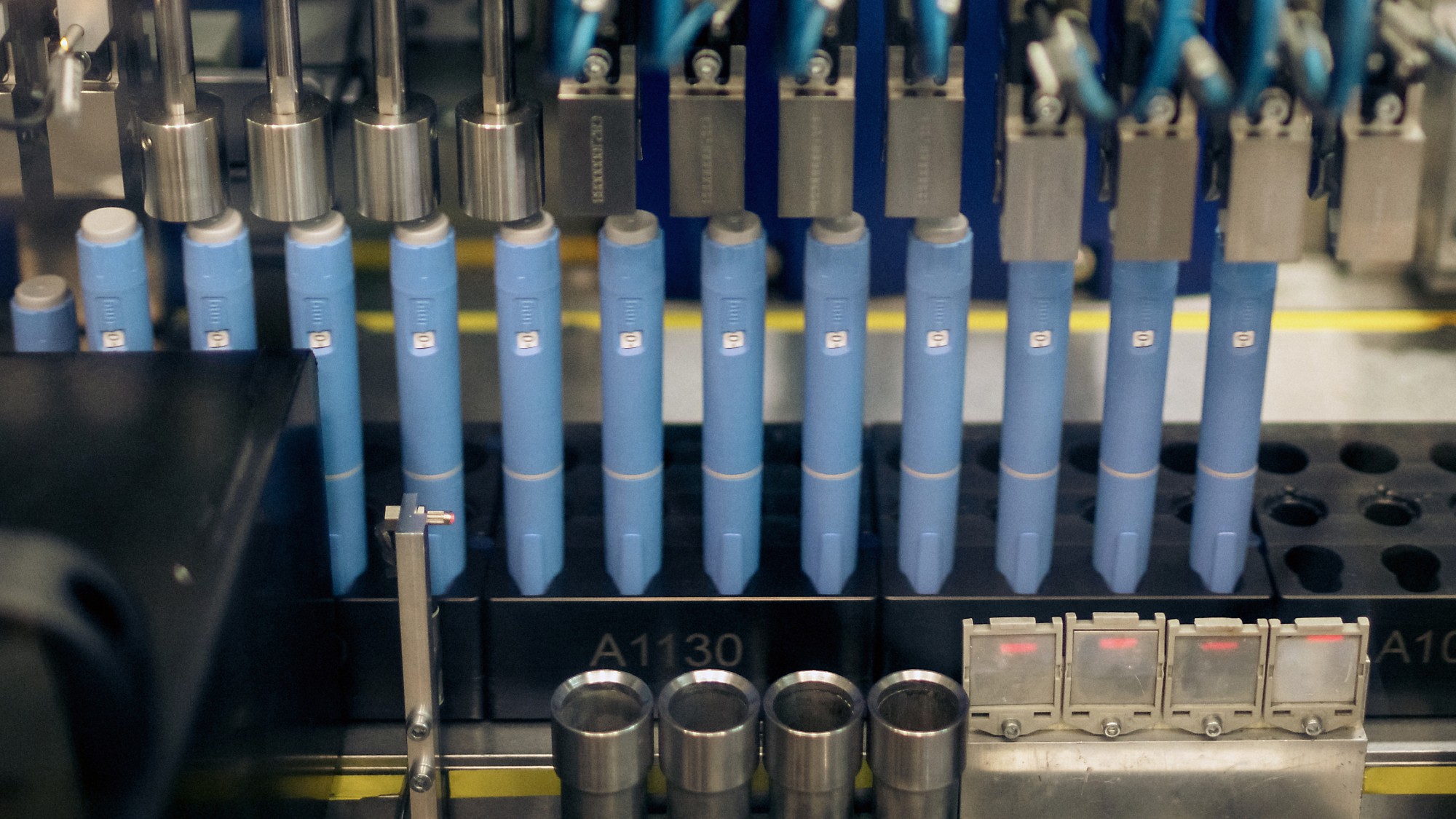The battle of the weight-loss drugs
Can Novo Nordisk and Eli Lilly regain their former stock market glory? A lot is riding on next year's pills

A free daily email with the biggest news stories of the day – and the best features from TheWeek.com
You are now subscribed
Your newsletter sign-up was successful
The boom in weight-loss and diabetes drugs – such as Novo Nordisk's Wegovy and Ozempic, and Eli Lilly's Zepbound and Mounjaro – "has been a bright spot for the pharmaceutical industry as it contends with heightened political uncertainty", said Hannah Kuchler and Patrick Temple-West in the FT. But it turns out that the makers of anti-obesity medications are just as vulnerable to stock market swings as any other pharma sector.
Denmark's stock market darling and its US rival have shed a lot of weight this year – and not in a good way. Novo Nordisk has lost $367 billion in value since its peak in June 2024 (losing its crown as Europe's largest company), while Lilly has fallen 29% from a record valuation last year, wiping $250 billion off its market capitalisation.
Some of the losses are down to pharma's broader problems: notably, President Trump's tariff and price-cut threats. But there is also a discernible waning of investor enthusiasm around obesity treatments, amid worries about the rise of "copycat drugs" and disappointing trial results from the next generation of medicines.
The Week
Escape your echo chamber. Get the facts behind the news, plus analysis from multiple perspectives.

Sign up for The Week's Free Newsletters
From our morning news briefing to a weekly Good News Newsletter, get the best of The Week delivered directly to your inbox.
From our morning news briefing to a weekly Good News Newsletter, get the best of The Week delivered directly to your inbox.
A good deal rests on the race to develop a weight-loss pill that will widen the market beyond today's injectable "fat jabs". Both Novo and Lilly plan to launch pills next year, said Reuters, and analysts are poring over efficacy data and pricing strategies. A key question is how much supply will be available at launch. The failure of both companies "to anticipate the huge demand" for their injectables in the past opened the US market "to cheaper compounded versions". They won't want to repeat the same mistake again.
The problem for Novo, at least, is that the pill form of Wegovy "requires about 75 times more" of the active ingredient (semaglutide) than its highest dose injection – adding to its cost. Pressure to keep pill prices down could result in a continued assault on America's insurance-dominated healthcare model. Currently, both Novo and Lilly offer big discounts to customers paying cash, rather than using insurance, to access jabs. That'll continue with the pills which, unusually for new medicines, will be priced on a par with existing treatments.
Trump has threatened to use "every tool in our arsenal" to stop pharma companies charging higher prices in the US than elsewhere, said Lauren Almeida in The Guardian. In July, he sent letters to 17 drugmakers, including Lilly and Novo, demanding cuts within 60 days – having earlier cited the example of a friend in London who had bought a "fat shot drug" for $88, compared with $1,300 in New York. The upshot is likely to be a steep hike in prices in the UK. Mounjaro users take note: prices are due to rise by up to 170% from September.
A free daily email with the biggest news stories of the day – and the best features from TheWeek.com
-
 Gisèle Pelicot’s ‘extraordinarily courageous’ memoir is a ‘compelling’ read
Gisèle Pelicot’s ‘extraordinarily courageous’ memoir is a ‘compelling’ readIn the Spotlight A Hymn to Life is a ‘riveting’ account of Pelicot’s ordeal and a ‘rousing feminist manifesto’
-
 The EU’s war on fast fashion
The EU’s war on fast fashionIn the Spotlight Bloc launches investigation into Shein over sale of weapons and ‘childlike’ sex dolls, alongside efforts to tax e-commerce giants and combat textile waste
-
 How to Get to Heaven from Belfast: a ‘highly entertaining ride’
How to Get to Heaven from Belfast: a ‘highly entertaining ride’The Week Recommends Mystery-comedy from the creator of Derry Girls should be ‘your new binge-watch’
-
 Growing a brain in the lab
Growing a brain in the labFeature It's a tiny version of a developing human cerebral cortex
-
 The truth about vitamin supplements
The truth about vitamin supplementsThe Explainer UK industry worth £559 million but scientific evidence of health benefits is ‘complicated’
-
 Health: Will Kennedy dismantle U.S. immunization policy?
Health: Will Kennedy dismantle U.S. immunization policy?Feature ‘America’s vaccine playbook is being rewritten by people who don’t believe in them’
-
 Stopping GLP-1s raises complicated questions for pregnancy
Stopping GLP-1s raises complicated questions for pregnancyThe Explainer Stopping the medication could be risky during pregnancy, but there is more to the story to be uncovered
-
 Obesity drugs: Will Trump’s plan lower costs?
Obesity drugs: Will Trump’s plan lower costs?Feature Even $149 a month, the advertised price for a starting dose of a still-in-development GLP-1 pill on TrumpRx, will be too big a burden for the many Americans ‘struggling to afford groceries’
-
 Ultra-processed America
Ultra-processed AmericaFeature Highly processed foods make up most of our diet. Is that so bad?
-
 The plant-based portfolio diet invests in your heart’s health
The plant-based portfolio diet invests in your heart’s healthThe Explainer Its guidelines are flexible and vegan-friendly
-
 The quest to defy ageing
The quest to defy ageingThe Explainer Humanity has fantasised about finding the fountain of youth for millennia. How close are we now?